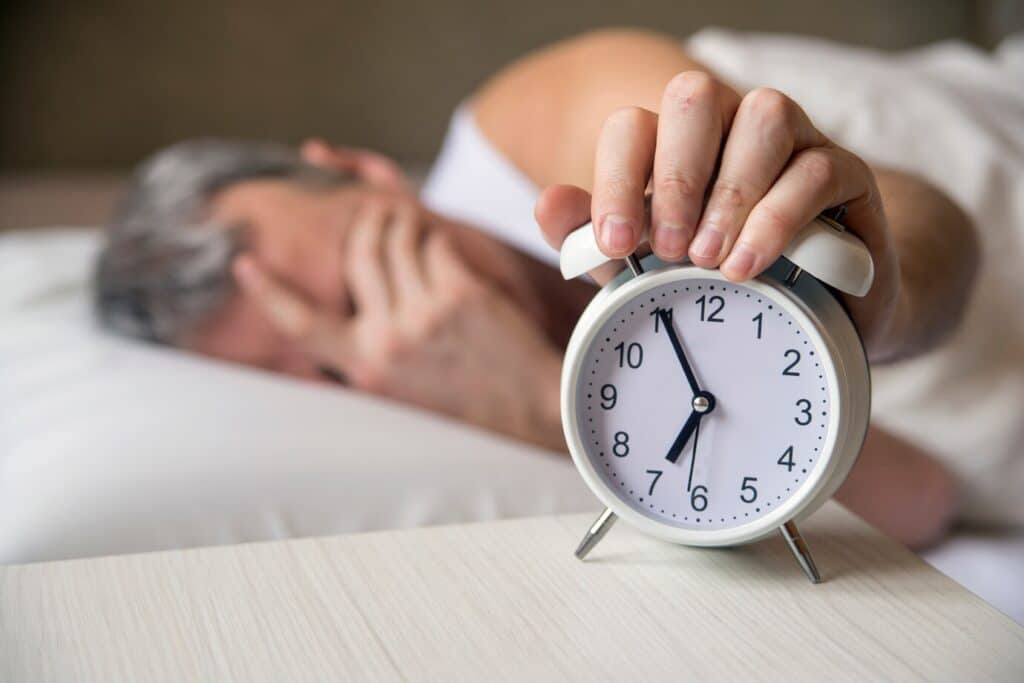Getting restful sleep becomes increasingly important as we age—but for many seniors, it’s also increasingly difficult. At Lakeview Senior Living in Lincoln City, OR, we understand that sleep issues can affect everything from your mood to your memory and immune function.
If you’ve been struggling with insomnia, tossing and turning at night, or feeling tired during the day, you’re not alone. Fortunately, there are simple, natural solutions that can help you fall asleep faster, stay asleep longer, and improve your overall quality of life. In this guide, we’ll explore why sleep becomes more challenging with age, and offer real strategies—including natural sleep remedies for the elderly—to help you or your loved one finally get the restful sleep you deserve.
For more information, visit us at Lakeview Senior Living.
The Importance of Restful Sleep for Seniors
As we age, our bodies go through various changes that can impact sleep. That’s why restful sleep is so essential for seniors—it supports immune function, mental clarity, emotional well-being, and even physical repair and balance.
When seniors sleep well, they are more likely to experience fewer falls, lower levels of anxiety, and a higher quality of life. The National Institute on Aging notes that older adults still need about 7 to 9 hours of sleep per night—just like younger adults—but they often struggle to get it. Understanding these challenges is key to finding solutions.
One common concern among families is: “Do the elderly sleep a lot before death?” While it’s natural for individuals to sleep more as their bodies begin to slow down near the end of life, this is not a universal sign of decline. Excessive sleeping can also result from medications, depression, or untreated sleep disorders. That’s why it’s crucial to assess sleep habits regularly and seek professional support when needed. Read more about common sleep challenges.
Why Do the Elderly Have Trouble Sleeping at Night?
Many seniors wonder, “Why do the elderly have trouble sleeping at night?” The answer lies in several age-related changes that affect sleep patterns:
- Reduced melatonin production, the hormone that helps regulate sleep cycles
- Chronic pain or illness that causes discomfort during the night
- Side effects from medications that cause wakefulness
- Increased frequency of nighttime urination
- Mental health concerns such as depression or anxiety
All of these factors contribute to disrupted sleep, leading to fragmented nights and fatigue during the day. This can lead to dangerous cycles of insomnia and napping, further worsening nighttime sleep.
If you or a loved one frequently wakes up during the night, it’s worth evaluating sleep hygiene practices and seeking medical advice to rule out conditions like sleep apnea or restless leg syndrome. Learn more about insomnia symptoms in seniors.

Importance of Sleep for Seniors
How to Increase Deep Sleep in the Elderly
Improving deep, restorative sleep is one of the best ways to help seniors wake up feeling refreshed. Here are some practical ways on how to increase deep sleep in the elderly:
- Stick to a consistent sleep schedule—go to bed and wake up at the same time daily
- Create a cool, dark, and quiet bedroom environment
- Avoid caffeine, alcohol, and heavy meals at night
- Incorporate physical activity during the day, such as walking or stretching
- Limit screen time before bed to avoid blue light exposure
One often overlooked tip is to introduce relaxation techniques like deep breathing or guided imagery. You can find excellent resources through Sleep Foundation and National Institute on Aging.
At Lakeview Senior Living, our team encourages personalized routines that promote restful sleep, helping residents fall into deeper sleep stages naturally.
Natural Sleep Remedies for the Elderly
Rather than jumping straight to medication, many seniors and caregivers are turning to natural sleep remedies for the elderly. These methods support sleep without the grogginess or dependency that sometimes comes with sleep aids.
Popular natural remedies include:
- Herbal teas like chamomile or valerian root
- Magnesium or melatonin supplements (always consult a physician first)
- Aromatherapy with lavender essential oils
- Gentle yoga or stretching before bed
These remedies can complement other healthy habits and help seniors avoid long-term sleep issues. Combining natural solutions with professional guidance gives seniors the best chance at achieving consistent restful sleep.
Want to explore more techniques? Visit this helpful resource on natural sleep support for seniors.
Managing Stress and Worries for Better Sleep
Stress plays a huge role in sleep disturbance. It’s hard to rest when your mind is full of worries. Seniors, in particular, may experience stress due to life transitions, loneliness, or health concerns.
Here’s how to address those stressors to improve restful sleep:
- Practice mindfulness meditation daily
- Keep a gratitude or reflection journal
- Develop a nighttime routine that includes reading, music, or light stretches
- Talk to someone—whether a family member or a professional counselor
Lakeview Senior Living also provides enriching activities and a sense of community to help residents feel safe, connected, and emotionally balanced. We’ve seen firsthand how emotional support can greatly improve sleep patterns. For more tips, explore these relaxing activities that help with anxiety.
Community Support and Sleep-Focused Resources
Incorporating community and support into your wellness journey can make all the difference. Whether you’re living in an assisted living setting or aging in place, surrounding yourself with the right environment and people can positively impact your sleep.
Lakeview Senior Living offers:
- Personalized care routines
- Access to sleep-friendly environments
- Staff trained in recognizing sleep concerns
- Activities that promote wellness and reduce stress
Residents also benefit from participating in discussions and group wellness sessions that help normalize and address sleep difficulties.
To further support restful sleep, our blog offers many more helpful articles, such as this one on relaxation and sleep techniques, and our staff is always here to talk through any concerns.
Embrace the Sleep You Deserve – Tour Lakeview Senior Living Today
Sleep shouldn’t be a nightly battle. Whether you’re a senior struggling to sleep through the night or a family member asking, “Do the elderly sleep a lot before death?”, the answer lies in creating the right care, support, and environment. With the right changes, seniors can experience restful sleep that improves both their health and happiness.
We’re here to help you or your loved one sleep better and live better. Call us at 541-994-7400 to speak with our team, or schedule a tour to see how Lakeview Senior Living creates the perfect environment for peaceful nights and energized days.
For more guidance on senior sleep health, check out the National Sleep Foundation or NIA’s sleep guide.
How Do The Costs Of Moving Into A Quality Senior Care Community Compare With The Costs Of Staying At Home?Compare The Costs of Senior Living vs Staying at Home
Frequently Asked Questions
How many hours should a senior citizen sleep?
Most senior citizens need about 7 to 8 hours of sleep each night to maintain good health. Sleep helps the body repair itself, supports memory, and boosts the immune system. While some older adults may feel rested with slightly less, consistent quality sleep is more important than total hours. Creating a regular bedtime routine and limiting naps can help improve sleep quality.
Why is my 75-year-old not sleeping?
Difficulty sleeping at age 75 is often linked to changes in the body’s internal clock, medical conditions, or side effects from medications. Stress, anxiety, or chronic pain can also keep seniors awake at night. Lifestyle habits like late caffeine intake, lack of exercise, or irregular sleep schedules may add to the problem. Identifying the cause with a doctor can help improve sleep patterns.
What is the best sleep aid for seniors?
The best sleep aid for seniors depends on the individual’s health needs and underlying conditions. Many experts recommend starting with natural solutions such as improving sleep hygiene, relaxation techniques, or melatonin supplements. Over-the-counter or prescription sleep aids should only be used under medical supervision due to possible side effects or drug interactions. A healthcare provider can suggest the safest option tailored to the senior’s needs.
What is the most common sleep disorder in the elderly?
The most common sleep disorder among elderly adults is insomnia. This condition makes it difficult to fall asleep, stay asleep, or wake up feeling refreshed. Causes can include health problems, stress, or medication use. Addressing these factors and practicing good sleep habits can often reduce symptoms and improve rest.









